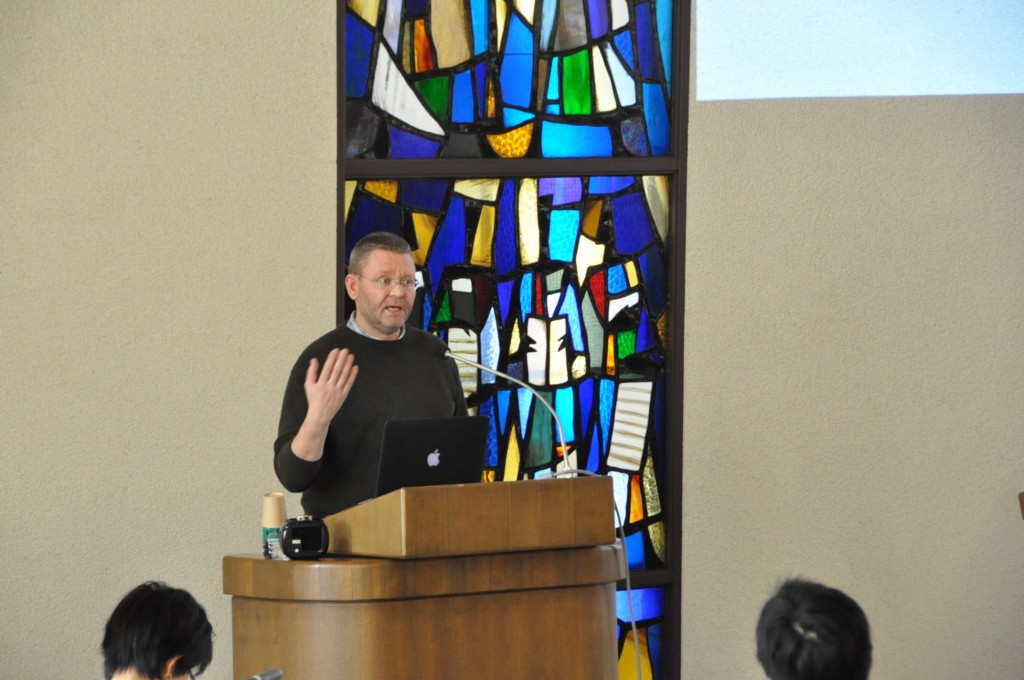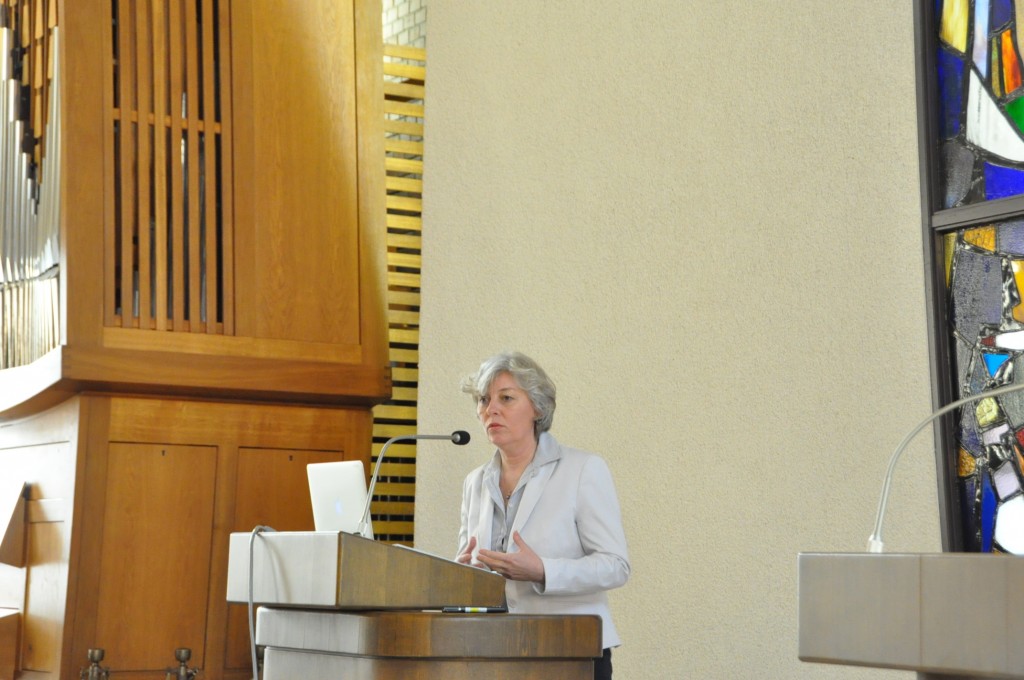Center for Interdisciplinary Study of Monotheistic Religions(CISMOR)Doshisha University
> Public Lectures > Islam and the State Regulation of Halal MarketPublic Lectures
Islam and the State Regulation of Halal Market
| Date: |
2014/03/06 14:00-17:15 |
|---|---|
| Place: | Divinity Hall Chapel, Imadegawa Campus, Doshisha University |
| Lecture: |
- Johan FISCHER, Associate Professor, Roskilde University (RUC), Denmark - Florence BERGEAUD-BLACKLER, Research Fellow, IDEMEC (Institute of Mediterranean, European and Comparative Ethnology), CNRS, France |
| Summary: | |
|
On March 6, 2014, a public workshop was organized by the Institute for Asian Muslim Studies, Waseda University, in partnership with CISMOR, Doshisha University, on the theme of "Islam and the State Regulation of the Halal Market." The word "halal" is used to refer to an object or action that is recognized as "licit" or "permitted" according to Islamic law. In recent years, the huge halal food market has been drawing worldwide attention. In this workshop, Johan Fischer (Associate Professor, Roskilde University, Denmark) and Florence Bergeaud-Blackler (Research Fellow, Institute of Mediterranean, European and Comparative Ethnology, CNRS, France), two anthropologists, active in socio-economic research into halal foods, served as invited lecturers and discussed the production and distribution of halal foods and related regulations by governments and international organizations. Prof. Fischer spoke under the title of "Global Halal Production, Trade and Regulation," mainly referring to cases in Malaysia and Singapore. The recent spread of mass production has resulted in an increase in halal products whose “halal-ness” – with regard to the ingredients and the process from raw material purchase to production and sale – is justifiably questionable. As a result, a call for halal regulation and certification systems is growing stronger worldwide. Under such circumstances, Malaysia and Singapore have established their national-level halal regulation and certification systems ahead of other countries, influencing halal markets throughout the rest of the world. In Malaysia, general interest in halal began to grow in the 1970s against the backdrop of the revival of Islam, economic growth, the emergence of a Muslim middle class, urbanization, industrialization, along with the country's ethnic makeup mainly composed of Muslim Malays and residents of Chinese descent. In Singapore, on the other hand, the majority of people are of Chinese descent, Muslims representing a minority. The Singaporean halal market is therefore small in scale, and its regulation and certification are strongly influenced by situations in larger halal markets in surrounding countries. Prof. Fischer also talked about his experience of "halal training" in Singapore and the separation of halal and non-halal foods in supermarkets. Dr. Bergeaud-Blackler gave a lecture under the title of "The International Development of Halal Food Standards: the European Case," taking up the global spread of halal standards today. The international halal market emerged in the 1980s, when Australia and New Zealand commenced the exportation of meat prepared differently for Muslim consumers in the Middle East. The 1990s saw the growth of halal meat markets in areas where Muslims constituted minority groups. In the first decade of the 21st century, halal certification came to be viewed as a "passport" for food targeted at Muslims. Up until the present time, however, existing halal standards have largely been varied, with over 100 halal standards for livestock slaughter and other procedures. While there have been movements for establishing globally uniform halal standards, this has not been realized due to differing local situations. The five international organizations concerned with halal standards, namely the World Halal Council (Canada and the United States), the International Halal Integrity Alliance (Malaysia), the Gulf Standard Organization (Gulf States), the Standard and Metrology Institute for Islamic Countries (Turkey), and the European Committee for Standardization (EU), have not produced a single set of standards, aiming rather for relative superiority by emphasizing respective specificities and characteristics. In conclusion, Dr. Bergeaud-Blackler stated that unifying halal standards would be as hard as simplifying the diversity of the Islamic world. In the workshop, a question and answer session was also held, moderated by Prof. Hiroshi Kojima (Director, Institute for Asian Muslim Studies, Waseda University). The event drew an audience of 70 or so, many of whom were observed keenly taking notes, indicative of the growing interest in halal foods in Japan. (Shunsuke Sugita, Research Fellow, CISMOR) |
|
|
*Admission Free, No Reservation Necessary. *Lecture in English, Interpretation will be provided. Hosted by: Institute for Asian Muslim Studies, Waseda Co-hosted by: CISMOR |
|

